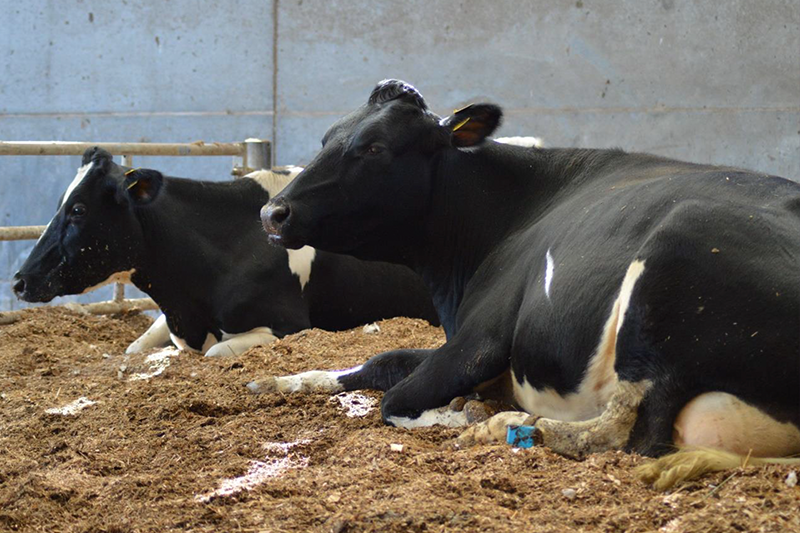CowAlert benefitting cows and education at Boltons Park Farm
Last year, the team at RVC’s Boltons Park Farm were awarded a grant of £29,000 to fund monitoring sensors and a CowAlert system. The sensors aim to improve herd welfare, expose RVC students to technology available in practice, and provide research opportunities to RVC staff and students into early detection behavioural changes.
After a year in use, we are pleased to report that the CowAlert system has been a very valuable addition to the Farm, as the team explains:

We received funding for the CowAlert system and leg-based cow monitoring sensors. The system defines activity budgets and detects lameness and oestrus in dairy cows. This system also has the ability to access the cows’ individual data from the database and for this to be used in research projects. This is of benefit to the teaching and learning of our veterinary students as this technology is becoming more popular on farms and can complement their diagnoses and herd health planning.
The CowAlert system has also been of benefit to the farm in terms of management of the cows and the detection of issues such as lameness. The sensors have been on the cows for a year now and have given us a huge amount of information on the cow’s behaviour and welfare. We have also been using it for oestrus detection on the farm as well.
The system has been invaluable for students – perhaps even more so with the COVID-19 pandemic - as it has given us a source of data that has been used for a huge range of student projects; some of which had to be completely changed as a result of the pandemic and not being able to gain access to the farm. The advantage of the cloud-based system means the all the cow’s data can be accessed remotely.
From a clinical point of view, the sensors haven given us early warnings of issues with the cows, and they flag up changes in behaviour allowing the herd manager to investigate. We have a number of projects planned that utilise the sensors, including developing lameness treatment protocols based on the alerts and the development of best practice treatment. We are also hoping to update the milking parlour this summer and data from the sensors will be useful to monitor the impact of this change on the activity budgets of the cows.
Following on from the CowAlert we have installed cameras in three of the sheds and purchased two MooCall calving sensors. All of this allows the herd to be monitored in a modern way that adds benefits to the quality of herd management and teaching for our students.
We are extremely grateful to the ACT for this funding as it really is difficult to put into words how great it is for the cows, and for teaching and research!
Thanks to your help we are able to improve the treatment and care of animals through clinical practices, education and research at the Royal Veterinary College. Please donate to our ongoing work and make a difference to the thousands of pets and animals cared for each year.
| Donate |

